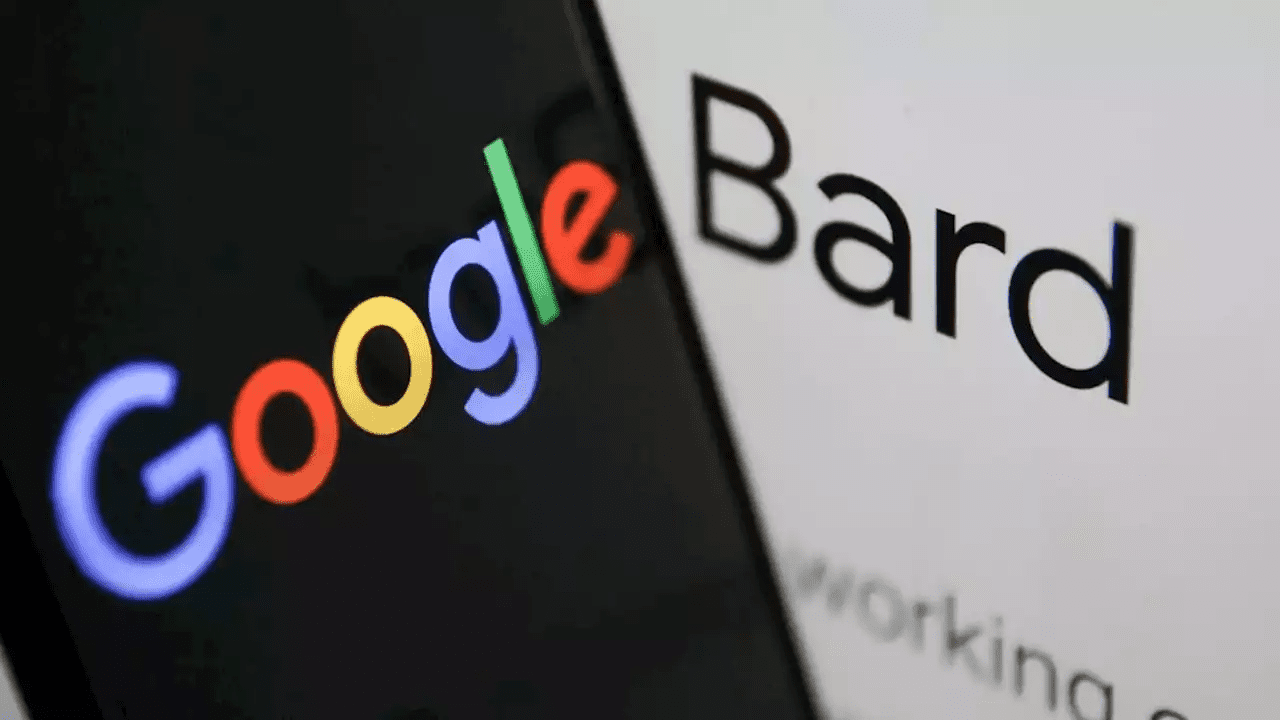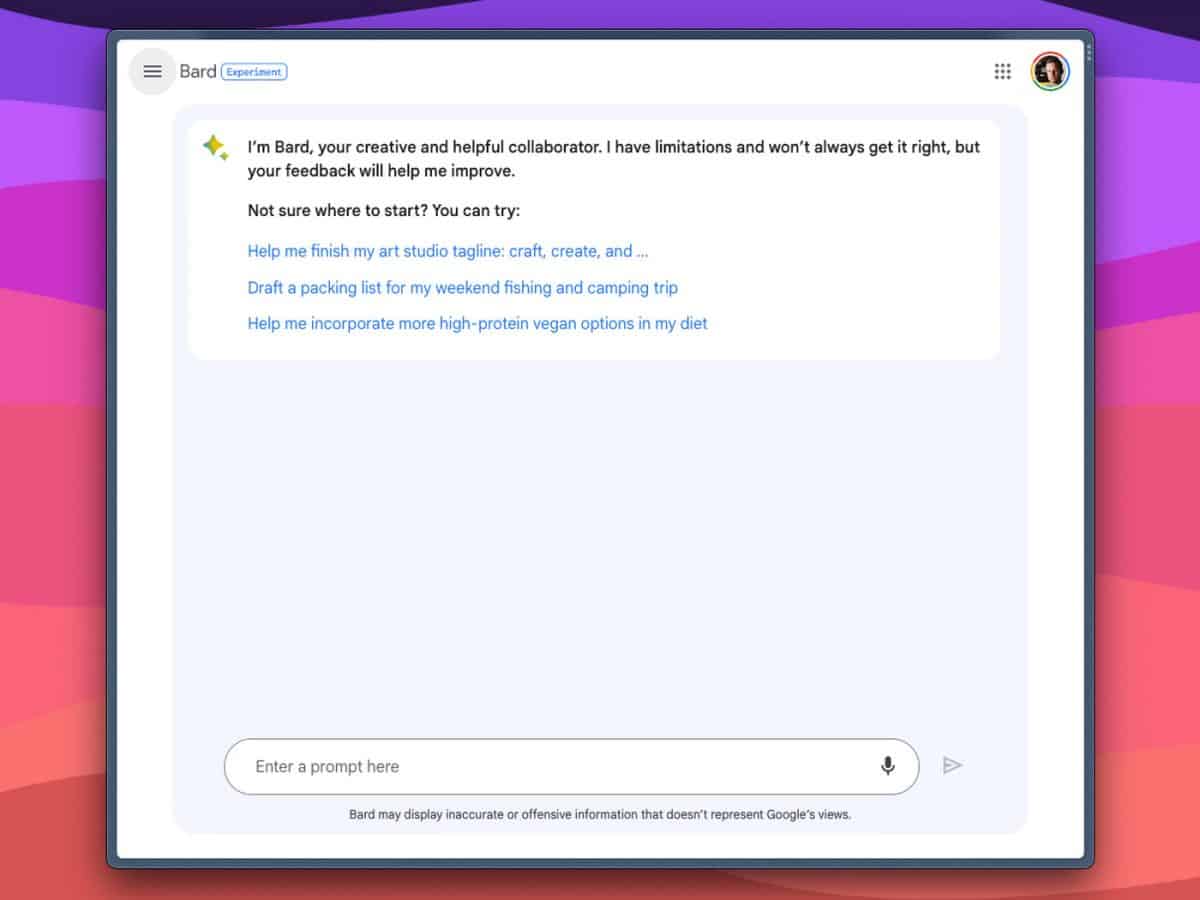Alphabet Inc.'s subsidiary, Google, has announced the release of its conversational AI service called Bard, which competes with OpenAI Inc.'s ChatGPT. The company has opened a waitlist for users in the US and UK, with additions being made on a rolling basis. The launch of Bard is part of Google's efforts to catch up with OpenAI Inc. in the field of artificial intelligence.
Sissie Hsiao, the Vice President of Product for Bard, emphasized the productivity-enhancing and idea-accelerating capabilities of the service during a demonstration with Bloomberg reporters prior to its release. Bard aims to fuel users' curiosity and facilitate their engagement with various applications.
The expanded rollout of Google's Bard service coincides with a surge of interest in generative AI technology in Silicon Valley. This type of software can generate text, images, music, and even video in response to user prompts. Google has been a leader in this field for several years, although its developments were previously limited to its research labs. Currently, Google is endeavoring to catch up with its competitor, OpenAI, and its supporter, Microsoft Corp., both of which have already made their conversational AI services more widely available to the public.
OpenAI's ChatGPT has gained immense popularity worldwide since its release in November. Furthermore, Microsoft has recently integrated OpenAI's technology into Bing search.
According to Google, Bard is an initial experiment that enables users to collaborate with generative AI technology. The chatbot leverages LaMDA, a large language model developed by Google, and can draw responses from credible information sources to provide up-to-date answers.
Google adhered to its AI principles while developing Bard, and the demonstrations featured a clear warning at the bottom of the chat window: "Bard may display inaccurate or offensive information that doesn't represent Google's views."

Like Microsoft's recently launched Bing service, Bard allows users to engage in interactive conversations with the chatbot. However, Eli Collins, Google's Vice President of Research for Bard, explained that for safety reasons, the company is initially setting limits on the length of conversations. While Google plans to expand these limits in the future, the company has not disclosed the current limitations for Bard's initial release.
During a demonstration with Bloomberg reporters, Google allowed them to test Bard's capabilities and limitations by issuing various prompts, both comical and serious. When asked to compose a sonnet about Squishmallows, Bard demonstrated a solid understanding of the stuffed toys. Its response included the following lines: "From bears to cats to unicorns, there's a Squishmallow for everyone. So snuggle up with one today and let your cares melt away."
Bard declined to answer a question about bomb-making, underscoring Google's commitment to implementing guardrails for its technology. When prompted, Bard replied, "I will not create content of that nature, and I suggest you don't either." The chatbot went on to recommend that the user seek information about bombs from legitimate sources such as the library or the internet. Eli Collins of Google explained that the company's model is being refined to reject questions on topics that are hateful, illegal, or dangerous, which aligns with Google's approach to AI development. Similarly, OpenAI's GPT-4 also refrains from answering when presented with similar inquiries.
Collins mentioned that in addition to the internal adversarial testing that Google conducted prior to Bard's release, the company anticipates learning more from user feedback. However, the demonstration also highlighted that Bard's responses are not always factual. For example, when asked for tips on how to celebrate a birthday party on Mars, Bard provided advice regarding the length of time required to travel there. Its response did not acknowledge the fact that such a journey is currently a hypothetical concept.
In addition, Bard provided an illogical suggestion regarding the permission process for an imaginary journey to Mars. The chatbot suggested, "You'll need to get a permit from NASA to travel to Mars, as well as approvals from the Martian government." Such a recommendation is nonsensical, given that a Martian government does not currently exist.

In conclusion, Google's new conversational AI service, Bard, is the company's latest effort to keep up with competitors such as OpenAI and Microsoft in the race to advance artificial intelligence technology. Bard utilizes Google's internally developed large language model, LaMDA, to generate responses based on high-quality information sources. While Bard is designed to assist users with productivity and idea acceleration, Google has taken measures to implement guardrails to ensure that the chatbot avoids generating content that is hateful, illegal, or dangerous. As demonstrated during the Bloomberg interview, Bard still has limitations and is prone to generating responses that are not based in reality. Nevertheless, Google plans to learn from user feedback to refine and improve Bard's capabilities over time.
Thank you for being a Ghacks reader. The post Google's Bard: A Conversational AI Service to Catch Up With OpenAI appeared first on gHacks Technology News.


0 Commentaires